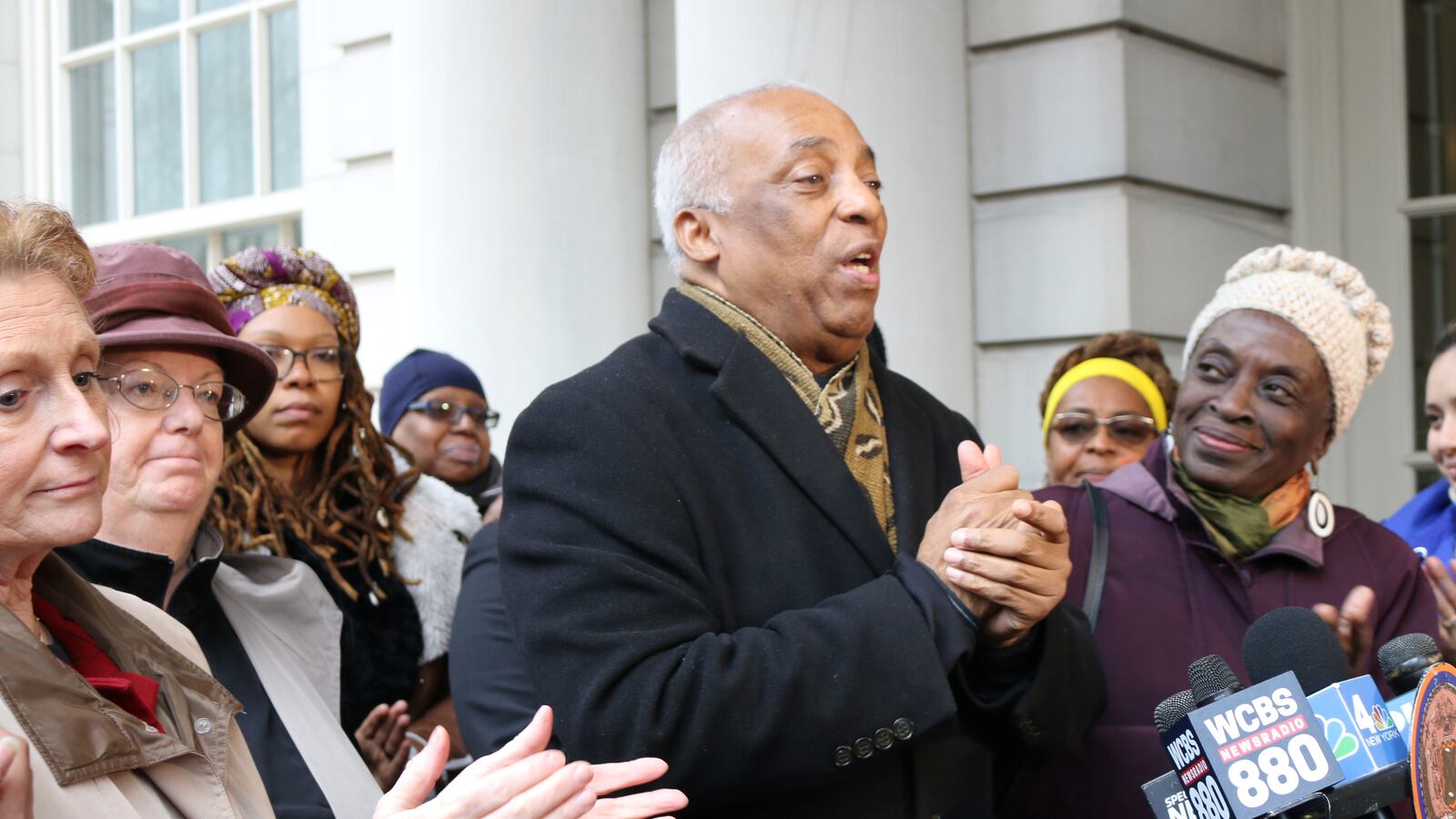With just one day left in the legislative session, legislators made last-minute efforts Tuesday to rally behind Mayor Bill de Blasio’s controversial plan to scrap the entrance exam at the city’s specialized high schools.
The Assembly’s education committee voted 16-12 in support of the bill that would carry out the mayor’s proposal. The bill, sponsored by Brooklyn Democratic Assemblyman Charles Barron, now goes to the powerful Rules Committee, chaired by Speaker Carl Heastie, and must successfully exit that forum before the entire Assembly can consider it. A spokesperson for Heastie did not respond to a request for comment.
It’s unclear if the bill will make it that far. The vote in the education committee was unexpected — the bill was added to the group’s meeting agenda late Monday night. And even Barron doesn’t believe there’s enough support in the Senate for his bill to pass this year. Queens Democratic Sen. John Liu, who oversees the Senate’s New York City education committee, has voiced staunch opposition to the mayor’s plan, previously calling it “dead in the water.”
Barron wasn’t sure whether the bill would make it to the full Assembly, where he doesn’t have all the votes needed for it to pass but said he was “close.” He considered Tuesday’s events a victory anyway because the bill received more debate than it did last year.
Barron said he was disappointed the bill didn’t have “stronger support, particularly from the black and Latino legislators in the Senate.” But he added, “I think we’ll have better momentum next year.”
Barron said he expended most of his energy this year just trying to get the bill out of the education committee — the same thing that happened last year before the bill was tabled. Next year, Barron said he plans to spend more time trying to curry support from senators and families in New York City.
Queens Democratic Assemblywoman Alicia Hyndman, who does not support Barron’s bill, said she was one of six legislators who spoke up during the Assembly’s education meeting. She supports eliminating the SHSAT as the sole hurdle for admission, but she doesn’t think the mayor’s plan to admit the top 7% of students at each middle school is the right approach. She’s carried a bill to create a pre-SHSAT for sixth graders to prepare students at an earlier age. The city has slowly expanded public test prep, but demographics at specialized high schools have scarcely budged in recent years.
Hyndman’s position is just one critique that has surfaced since last June, when the mayor first announced his plan. It is designed to increase diversity at the elite high schools but immediately attracted fierce opposition, prompting a lawsuit and deep-pocketed funders to launch a campaign against the proposal.
While some objected to the plan itself, pointing to the need for a focus on elementary and middle-school education instead, others criticized the absence of groundwork by the mayor to prepare the public for his proposed changes.
The anger was especially acute among many in the Asian community: Asian students received 51 percent of offers to specialized high schools this year but represent about 16% of students citywide. Last week, the mayor and Chancellor Richard Carranza held a closed-door meeting with several supporters and opponents from this community to discuss the SHSAT and other topics, a move critics said was a “last ditch attempt” to sway opinion in favor of the legislation.
The same day, the state’s 63-member Black, Puerto Rican, Hispanic, and Asian caucus endorsed eliminating the exam, with a majority of members backing Barron’s bill, said Kyle Ishmael, executive director of the caucus. But it appears that this will not be enough to move a bill that’s been stalled for roughly a year.
Ishmael noted that there were still divisions among members of the caucus on how best to diversify the specialized high schools. But the caucus wanted to take a position before the session ended, he said.
“The elimination of the test — that is a position of a majority of the members,” Ishmael said. “But there’s also the thought that doesn’t have to be the only thing.”
Zipporah Osei contributed reporting to this story.

